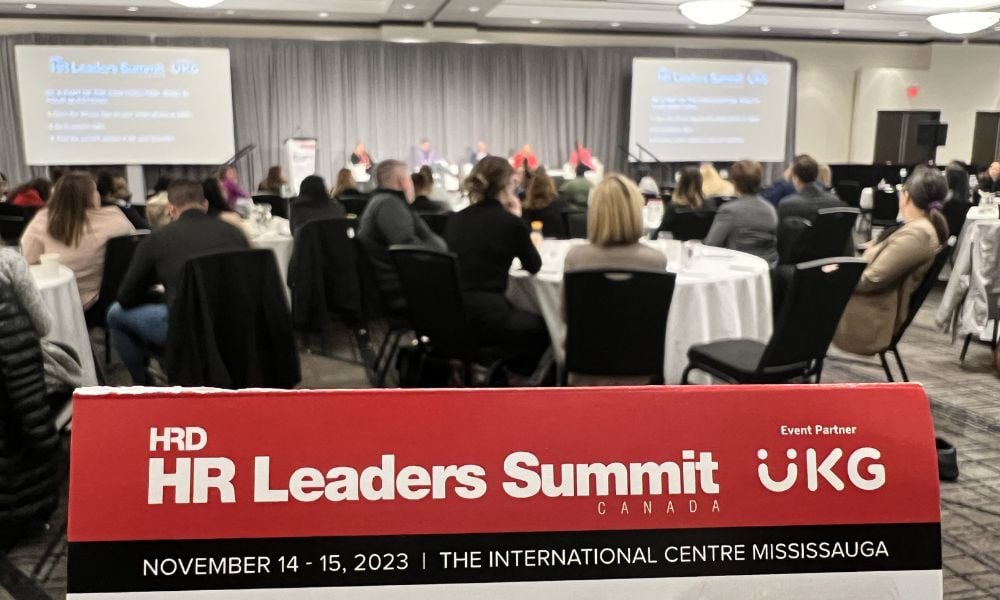
The summit was held on November 14 and 15 in Toronto

Understanding what is important to employees and then setting them up from an equitable standpoint that is still good for business is a key challenge for employers, according to Cal Rolle, diversity and inclusion manager at Novo Nordisk.
Rolle emphasized this point at the HRD Leaders Summit, which was held at the International Centre in Toronto last week. The summit consisted of two days of sessions, featuring panels, speakers and interviews aimed at providing HR professionals with an array of information for developing new strategies and connections to transform their organizations.
Rolle spoke to HR professionals on a panel concerning DEI goal setting and achieving measurable results where he shared valuable insights regarding prioritising employees and seeing them as “people first.”
“I would encourage all HR leaders to sometimes have that moment of reflection and have the tough conversation with yourself or with your business saying, ‘these are our people first, if we're not taking care of them, they won't take care of us,’” Rolle said.
The session also featured Lorna Clamp senior vice president of strategy and culture at Securiguard, Nabil Merali, SVP and Canada health and benefits co-leader at AON and Permpreet Soomal, chief people officer at Capital One Canada. The panellists engaged in conversations regarding the importance of DEI strategies especially when it comes to creating a people-first culture built on empathy and belonging, with Rolle emphasizing the importance of giving individuals a voice within an organization through strategies like focus groups.
“If you're being transparent with your employees, and with the organization, you have that much more room for people to want to be a part of the journey,” he said. “The reality is, we all have a lot of room for opportunity, growth and maintaining that growth mindset.”
Alongside discussions on DEI, the summit featured a session on hybrid and flexible work environments, as many organizations are seeing shifts from the structured two or three days in office to a more people-centred approach where organizations are leading with flexibility and allowing employees to have more flexibility and autonomy in how and where they work, according to Carlee Sawyer, managing director and thought leader at O.C. Tanner.
Sawyer spoke on the panel ‘optimizing flexible workplaces to increase engagement’ where she highlighted this shift and how many organizations are finding more time for personal and professional development and social connection, which is a trend she things is here to stay.
“Hybrid work or flexible work will become a great competitive advantage for organizations,” she said.
Sawyer also encouraged professionals to lead with empathy, as leaders who have an empathetic approach or people centred approach will foster greater connections to the purpose of the organization and their teams, she said.
“When organizations empower their leaders to really value the whole person, not just the contributions, that's when you are going to see results as far as greater retention and stronger fulfillment,” Sawyer said.
Day two of the Summit saw myriad topics ranging from the use of AI in HR to how employers could help retain talent by adding fertility/infertility benefits to employees.
In a fireside chat, Sonia Singh, VP of Sales for Canada for Progyny, discussed the infertility landscape across Canada and how employers can help reduce the stigma surrounding this sensitive topic. She highlighted how family and fertility can have a huge impact on organizations, as employees go in search of the benefits that best meet their needs.
“Family and fertility benefits are a huge retention piece because you’re building loyalty, and if you're supporting somebody through their goal of creating a family, you're going to retain that talent,” she said. “Not only that, but you're also building a culture of inclusivity and support, and if you're supporting people going through this, you're actually helping them there and absenteeism is going to go down.”